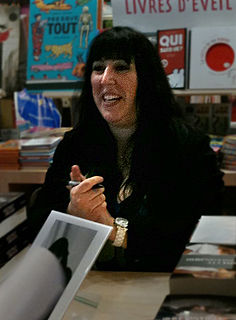A Quote by Mason Cooley
Compassion brings us to a stop, and for a moment we rise above ourselves.
Quote Topics
Related Quotes
The first beneficiary of compassion is always oneself. When compassion, or warmheartedness, arises in us and our focus shifts away from our own narrow self-interest, it is as if we open an inner door. It reduces fear, boosts confidence and brings us inner strength. By reducing distrust, it opens us to others and brings us a sense of connection to others, and sense of purpose and meaning in life.
And God says to all of us, you are no chicken; you are an eagle. Fly, eagle, fly. And God wants us to shake ourselves, spread our pinions, and then lift off and soar and rise, and rise toward the confident and the good and the beautiful. Rise towards the compassionate and the gentle and the caring. Rise to become what God intends us to be - eagles, not chickens.
I believe the message in the hymn "Rise Up, O Men of God" (Hymns, no. 324) is a plea, a call, a divine invitation for us to rise above the telestial tinsel of our time; to deny ourselves of ungodliness and clothe ourselves in the mantle of holiness; to reach and stretch and grasp for that spiritual direction and sacred empowerment promised to the Lord's agents, to those charged to act in the name of our Principal, Jesus Christ; and to point the way to salvation and deliverance and peace in a world that finds itself enshrouded in darkness, a world that yearns for spiritual leadership.
The essence of love and compassion is understanding, the ability to recognize the physical, material, and psychological suffering of others, to put ourselves "inside the skin" of the other. We "go inside" their body, feelings, and mental formations, and witness for ourselves their suffering. Shallow observation as an outsider is not enough to see their suffering. We must become one with the subject of our observation. When we are in contact with another's suffering, a feeling of compassion is born in us. Compassion means, literally, "to suffer with."
So it is with life. Those thorns, the prickly problems of life, cause us to strive to rise above them and then, as we do, we learn. We learn to exercise true compassion, true kindness - or the thorns, if we let them, cause us to brood, to mourn over our trials. Then we plant the seeds of bitterness, hate, and ruin - weeds. We may reach up for the rose or down to the weeds...the weeds in life that tangle us, strangle us, and cause us to lose hope.






































